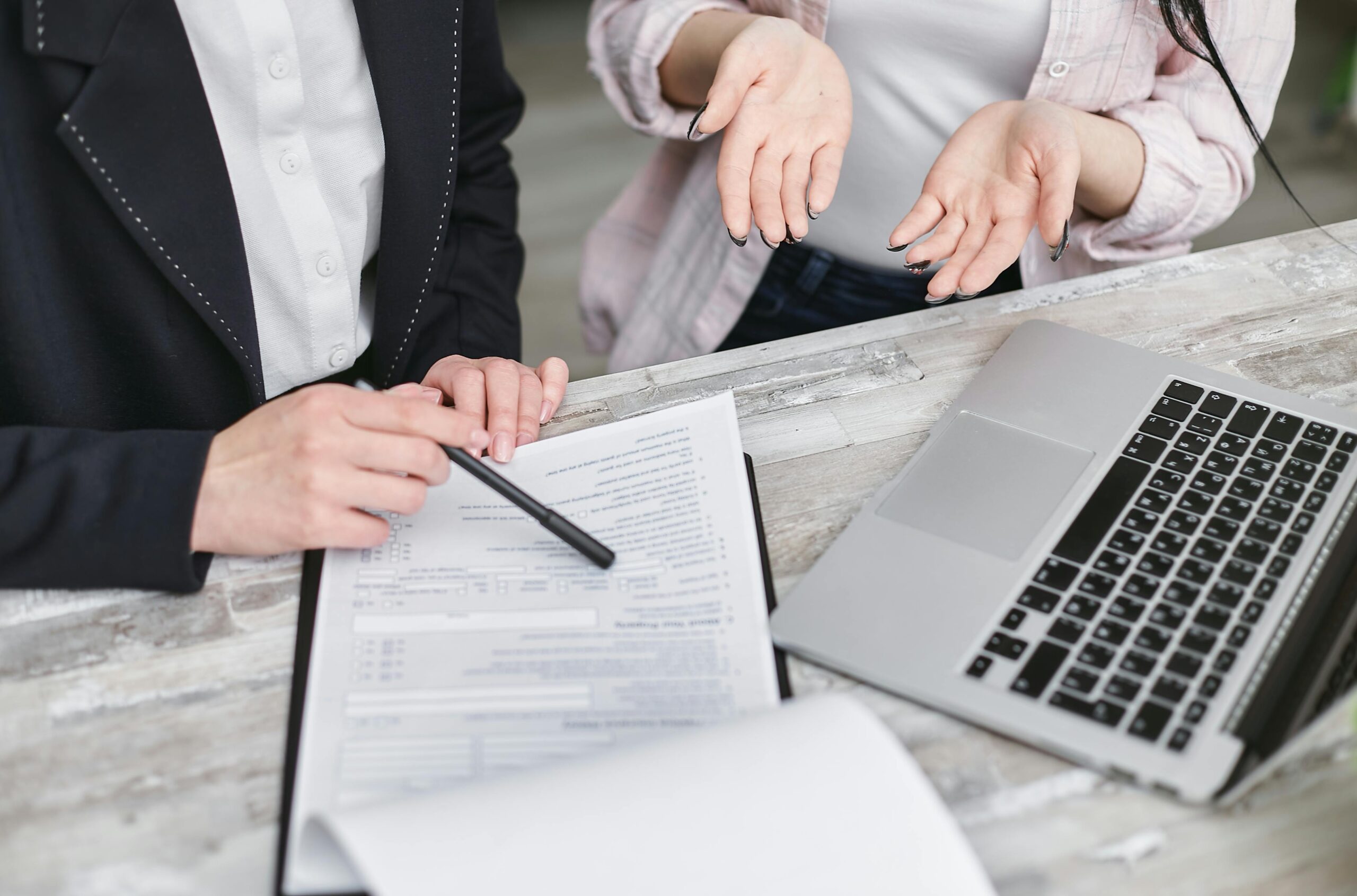Documenting the Scene: Gathering Crucial Information
After ensuring everyone’s safety, the next critical step is to document the accident scene thoroughly. This documentation can be invaluable when dealing with insurance claims and legal proceedings.
- Exchange Information: Obtain the names, addresses, phone numbers, driver’s license numbers, and insurance information from all drivers involved. Also, note the license plate numbers and vehicle descriptions.
- Record the Scene: Take photos and videos of the accident scene, including vehicle damage, road conditions, and any relevant signage. Capture the overall context of the accident.
- Witness Information: If there are any witnesses, collect their names and contact information. Witness statements can be very helpful in determining fault.
Careful documentation can prevent disputes later on. Ensure the information is accurate and detailed, as this information is extremely helpful when moving forward with a claim.
Reporting the Accident to the Police and ICBC
Reporting the accident promptly is crucial. Here are the steps involved:
- Police Reporting: As mentioned earlier, accidents involving injuries, death, or significant property damage must be reported to the police. The police will create an accident report, which includes their assessment of the situation.
- ICBC Reporting: You must report the accident to the Insurance Corporation of British Columbia (ICBC), regardless of who is at fault. You can do this online, by phone, or in person at an ICBC claim center.
- Provide Accurate Information: When reporting, provide all details accurately and honestly. Withholding or misrepresenting information can have serious consequences.
Dealing with ICBC: Initiating Your Claim
Dealing with ICBC can be complex. Here’s a breakdown of the process:
- Initiate Your Claim: After reporting the accident, ICBC will assign you a claim number and a claims adjuster. Contact the adjuster to discuss the details of the accident and the damages.
- Cooperate with the Adjuster: It is important to cooperate with the ICBC adjuster, but remember that they represent the insurance company. Be careful about what you say and avoid speculating about fault.
- Document Everything: Keep records of all communication with ICBC, including dates, names, and a summary of what was discussed.
Remember, you have the right to seek legal advice at any point during the claims process. An experienced legal professional can help you navigate the complexities of ICBC claims and protect your rights.
Seeking Medical Attention and Documenting Injuries
Your health is paramount. Seeking medical attention promptly after a car accident is not only essential for your well-being but also for documenting your injuries for your claim.
- See a Doctor: Visit a doctor or medical professional as soon as possible, even if you feel fine. Some injuries may not be immediately apparent.
- Document Your Injuries: Clearly explain all your symptoms and injuries to the medical professional. Ensure they document everything in your medical records.
- Follow Medical Advice: Adhere to the treatment plan prescribed by your doctor. This includes attending follow-up appointments, taking medication, and undergoing physical therapy.
Maintaining detailed medical records is crucial for substantiating your claim and demonstrating the extent of your injuries.
Understanding Your Legal Options and Potential Claims
Depending on the circumstances of the accident, you may have several legal options available to you. Understanding these options can help you make informed decisions about how to proceed.
- Personal Injury Claim: If you’ve been injured in a car accident due to someone else’s negligence, you may be entitled to compensation for your injuries, medical expenses, lost income, and pain and suffering.
- Accident Benefits: Regardless of who is at fault, you are entitled to certain accident benefits through ICBC. These benefits can cover medical expenses, rehabilitation costs, and wage loss.
- Tort Claim: If the other driver was at fault, you may be able to pursue a tort claim against them to recover damages not covered by accident benefits.
Consulting with a legal professional can help you assess your legal options and determine the best course of action.
Avoiding Common Mistakes That Can Harm Your Claim
Navigating the aftermath of a car accident can be fraught with potential pitfalls. Avoiding these common mistakes can significantly improve the outcome of your claim:
- Admitting Fault: Never admit fault at the scene of the accident. The full circumstances may not be immediately clear, and admissions can be used against you.
- Delaying Medical Treatment: Delaying medical treatment can make it harder to prove that your injuries were caused by the accident.
- Providing Recorded Statements Without Legal Advice: Before providing a recorded statement to ICBC, consult with a legal professional. Your words can be misinterpreted or used to undermine your claim.
- Settling Too Quickly: Do not rush to settle your claim before fully understanding the extent of your injuries and the potential long-term consequences.
Being aware of these common mistakes and taking steps to avoid them can protect your rights and ensure a fair outcome.
FAQ
What is the first thing you should do after a car accident?
The very first step is to check for injuries to yourself and others involved, and call for medical assistance if needed. After ensuring everyone’s safety, move the vehicles to a safe location if possible and turn on hazard lights to prevent further accidents.
How do I report an accident to ICBC?
You can report the accident to ICBC online, by phone, or in person at an ICBC claim center. Provide all the necessary details about the accident, including the date, time, location, and information about the vehicles and drivers involved, and be accurate in your report.
What does ICBC accident benefits cover?
ICBC accident benefits can cover a range of expenses, including medical treatments, rehabilitation costs, and wage loss if you are unable to work due to your injuries. It is important to understand the full scope of these benefits to ensure you receive the support you need.
How can I document the car accident scene?
Documenting the scene involves several key steps: exchanging information with the other driver, taking photographs and videos of the accident scene and vehicle damage, and collecting contact information from any witnesses. Detailed documentation helps to build a strong case.
What should I avoid doing after a car accident?
Avoid admitting fault at the scene, delaying medical treatment, providing recorded statements to ICBC without legal advice, and settling your claim too quickly. Taking care to avoid these mistakes can protect your legal position and rights.
Talk to us to find out more. ->
The content above is not intended to provide legal advice or opinions of any kind and may not be used for professional or commercial purposes.
Welcome! Navigating the aftermath of a car accident can be incredibly stressful. This guide aims to provide clear, actionable steps to take following a car crash in British Columbia. From ensuring everyone’s safety to dealing with insurance claims, understanding the process can make a significant difference.
Table of Contents
- Immediate Steps Following a Car Accident
- Documenting the Scene: Gathering Crucial Information
- Reporting the Accident to the Police and ICBC
- Dealing with ICBC: Initiating Your Claim
- Seeking Medical Attention and Documenting Injuries
- Understanding Your Legal Options and Potential Claims
- Avoiding Common Mistakes That Can Harm Your Claim
- FAQ
Immediate Steps Following a Car Accident
The moments immediately following a car crash are crucial. Staying calm and taking decisive action can protect your safety and your rights. Here’s what to do:
- Check for Injuries: Ensure that everyone involved – yourself, passengers, and occupants of other vehicles – is okay. Call for medical assistance immediately if anyone is injured.
- Move to Safety: If possible and safe to do so, move the vehicles to the side of the road to prevent further accidents. Turn on hazard lights.
- Call the Police: In British Columbia, you are required to report any accident to the police if there are injuries, death, or damages exceeding $2,000.
It’s essential to prioritize safety first. Do not attempt to move injured individuals unless they are in immediate danger.
Documenting the Scene: Gathering Crucial Information
After ensuring everyone’s safety, the next critical step is to document the accident scene thoroughly. This documentation can be invaluable when dealing with insurance claims and legal proceedings.
- Exchange Information: Obtain the names, addresses, phone numbers, driver’s license numbers, and insurance information from all drivers involved. Also, note the license plate numbers and vehicle descriptions.
- Record the Scene: Take photos and videos of the accident scene, including vehicle damage, road conditions, and any relevant signage. Capture the overall context of the accident.
- Witness Information: If there are any witnesses, collect their names and contact information. Witness statements can be very helpful in determining fault.
Careful documentation can prevent disputes later on. Ensure the information is accurate and detailed, as this information is extremely helpful when moving forward with a claim.
Reporting the Accident to the Police and ICBC
Reporting the accident promptly is crucial. Here are the steps involved:
- Police Reporting: As mentioned earlier, accidents involving injuries, death, or significant property damage must be reported to the police. The police will create an accident report, which includes their assessment of the situation.
- ICBC Reporting: You must report the accident to the Insurance Corporation of British Columbia (ICBC), regardless of who is at fault. You can do this online, by phone, or in person at an ICBC claim center.
- Provide Accurate Information: When reporting, provide all details accurately and honestly. Withholding or misrepresenting information can have serious consequences.
Dealing with ICBC: Initiating Your Claim
Dealing with ICBC can be complex. Here’s a breakdown of the process:
- Initiate Your Claim: After reporting the accident, ICBC will assign you a claim number and a claims adjuster. Contact the adjuster to discuss the details of the accident and the damages.
- Cooperate with the Adjuster: It is important to cooperate with the ICBC adjuster, but remember that they represent the insurance company. Be careful about what you say and avoid speculating about fault.
- Document Everything: Keep records of all communication with ICBC, including dates, names, and a summary of what was discussed.
Remember, you have the right to seek legal advice at any point during the claims process. An experienced legal professional can help you navigate the complexities of ICBC claims and protect your rights.
Seeking Medical Attention and Documenting Injuries
Your health is paramount. Seeking medical attention promptly after a car accident is not only essential for your well-being but also for documenting your injuries for your claim.
- See a Doctor: Visit a doctor or medical professional as soon as possible, even if you feel fine. Some injuries may not be immediately apparent.
- Document Your Injuries: Clearly explain all your symptoms and injuries to the medical professional. Ensure they document everything in your medical records.
- Follow Medical Advice: Adhere to the treatment plan prescribed by your doctor. This includes attending follow-up appointments, taking medication, and undergoing physical therapy.
Maintaining detailed medical records is crucial for substantiating your claim and demonstrating the extent of your injuries.
Understanding Your Legal Options and Potential Claims
Depending on the circumstances of the accident, you may have several legal options available to you. Understanding these options can help you make informed decisions about how to proceed.
- Personal Injury Claim: If you’ve been injured in a car accident due to someone else’s negligence, you may be entitled to compensation for your injuries, medical expenses, lost income, and pain and suffering.
- Accident Benefits: Regardless of who is at fault, you are entitled to certain accident benefits through ICBC. These benefits can cover medical expenses, rehabilitation costs, and wage loss.
- Tort Claim: If the other driver was at fault, you may be able to pursue a tort claim against them to recover damages not covered by accident benefits.
Consulting with a legal professional can help you assess your legal options and determine the best course of action.
Avoiding Common Mistakes That Can Harm Your Claim
Navigating the aftermath of a car accident can be fraught with potential pitfalls. Avoiding these common mistakes can significantly improve the outcome of your claim:
- Admitting Fault: Never admit fault at the scene of the accident. The full circumstances may not be immediately clear, and admissions can be used against you.
- Delaying Medical Treatment: Delaying medical treatment can make it harder to prove that your injuries were caused by the accident.
- Providing Recorded Statements Without Legal Advice: Before providing a recorded statement to ICBC, consult with a legal professional. Your words can be misinterpreted or used to undermine your claim.
- Settling Too Quickly: Do not rush to settle your claim before fully understanding the extent of your injuries and the potential long-term consequences.
Being aware of these common mistakes and taking steps to avoid them can protect your rights and ensure a fair outcome.
FAQ
What is the first thing you should do after a car accident?
The very first step is to check for injuries to yourself and others involved, and call for medical assistance if needed. After ensuring everyone’s safety, move the vehicles to a safe location if possible and turn on hazard lights to prevent further accidents.
How do I report an accident to ICBC?
You can report the accident to ICBC online, by phone, or in person at an ICBC claim center. Provide all the necessary details about the accident, including the date, time, location, and information about the vehicles and drivers involved, and be accurate in your report.
What does ICBC accident benefits cover?
ICBC accident benefits can cover a range of expenses, including medical treatments, rehabilitation costs, and wage loss if you are unable to work due to your injuries. It is important to understand the full scope of these benefits to ensure you receive the support you need.
How can I document the car accident scene?
Documenting the scene involves several key steps: exchanging information with the other driver, taking photographs and videos of the accident scene and vehicle damage, and collecting contact information from any witnesses. Detailed documentation helps to build a strong case.
What should I avoid doing after a car accident?
Avoid admitting fault at the scene, delaying medical treatment, providing recorded statements to ICBC without legal advice, and settling your claim too quickly. Taking care to avoid these mistakes can protect your legal position and rights.
Talk to us to find out more. ->
The content above is not intended to provide legal advice or opinions of any kind and may not be used for professional or commercial purposes.







